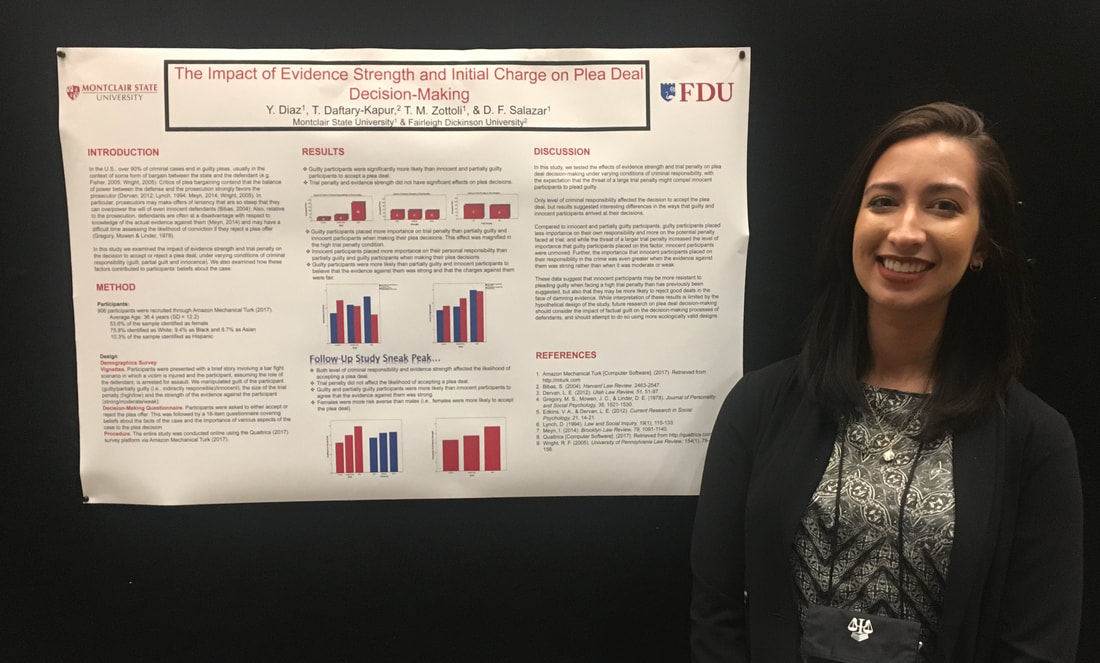|
Yaritza Diaz is a student at Montclair State University in their five-year BA/MA program in General Psychology. She presented her poster titled "The Impact of Evidence Strength and Initial Charge on Plea Deal Decision-Making" at the AP-LS Conference in Seattle, Washington this year. Congratulations, Yaritza!
Abstract: Plea bargaining is a critical component of our criminal justice system and, at the same me, is the subject of significant controversy regarding the power imbalance that exists between prosecutors and defendants in plea negotiations. For example, it has been argued that prosecutors may use their power to overcharge defendants in order to induce them to plead guilty to lesser charges and that defendants o en lack access to material or exculpatory evidence pre-plea. Using brief vignettes, we examined the effects of trial penalty (high/low) and evidence strength (strong/moderate/weak) on the plea bargaining decisions of participants who were asked to imagine themselves charged with assault a er a bar fight where they were responsible, not responsible or indirectly responsible for the injury of another patron. Results show that as the level of criminal responsibility increases so does the percentage of mock defendants that accept a plea bargain. We also learned that innocent and guilty defendants differ in what factors are most important to their decision making. Innocent participants care more than other participants about their level of criminal responsibility, whereas guilty participants care more about the sentence if they go to trial.
0 Comments
Your comment will be posted after it is approved.
Leave a Reply. |
About the Editor:
The American Psychology-Law Society (Division 41 of the American Psychology Association) Student Committee is composed of elected student leaders representing the interests of our student members. Categories
All
Archives
June 2024
|
|
Except where otherwise noted, content on this site is licensed under a Creative Commons Attribution 4.0 International license. Icons by Icons8
|
|


 RSS Feed
RSS Feed
